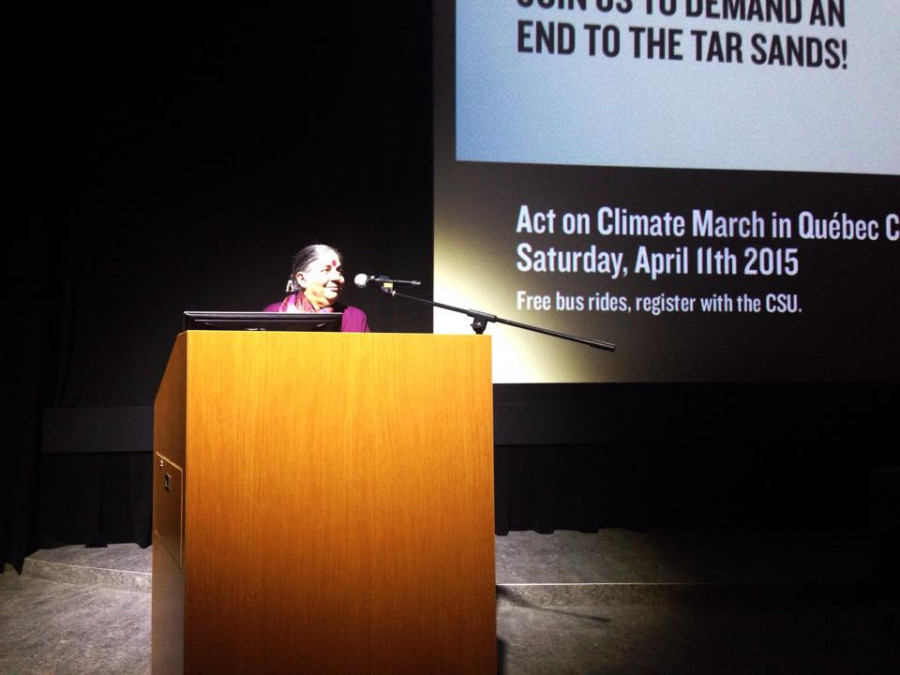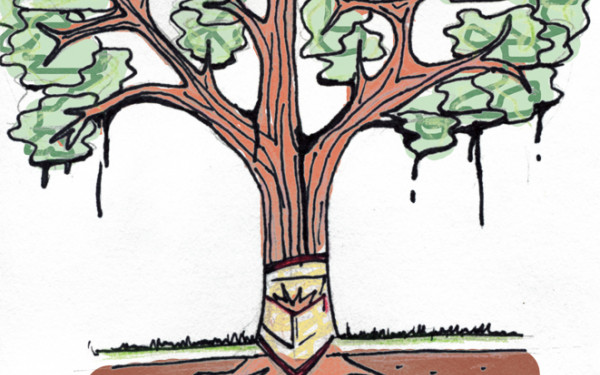Free Farming From Oil
The world needs to move away from fossil fuel-driven industrial farming, according to Indian environmentalist Dr. Vandana Shiva.
The world-renowned feminist and environmental activist was invited by the Concordia Student Union to speak at Concordia last Thursday on her new book, Soil Not Oil. Dr. Shiva advocates for the return of traditional organic family farms and the abandonment of large-scale corporate farming which use pesticides and genetically modified organisms.
Shiva’s interest in food systems began in 1984, the year of the Bhopal disaster, when a gas leak at a Union Carbide pesticide factory in Bhopal, India led to thousands of deaths from methyl isocyanate inhalation.
“I decided at the end of that year to try and understand why agriculture was so violent,” she said.
In 1987, she attended a meeting where corporations announced their plans to patent seeds under the intellectual property clauses of the then-new free trade agreements. Since that time, she has devoted her life to “saving seeds, promoting organic farming, basically exposing the farce of free trade as well as GMOs and patenting.”
Shiva argues that fossil fuel-based farming practices are both unsustainable and harmful to the environment.
“If we were to turn even a fraction of the soils of the world to organic, we could pull out ten gigatonnes of carbon dioxide from the atmosphere,” she said. “The soil is living and has more diversity than any other ecosystem.”
The soil’s natural fertility and biodiversity is being ignored by the fertilizer companies, Shiva argues. She believes industrial agriculture corporations consider themselves opposed to nature.
“Destruction of the earth, and being at war with the earth is the motivating paradigm,” Shiva said.
“Part of that war is against the soil, part of that war is against the atmosphere – climate change, part of that war is against all the species… we’re losing species 1000 times faster than normal rates.”
Industrial farming practices are leading to a dramatic loss in biodiversity, she added.
“These chemicals that come from oil must convert the diversity that is very, very comfortable with soil into a monoculture,” she continued. “It cannot tolerate diversity.”
Shiva pointed out that agricultural pesticides are used indiscriminately against beneficial and harmful insects alike, as if every insect is a pest. There are no pests in ecology, she says, they are created through irresponsible relationships with the earth.
Nevertheless, Shiva said she’s hopeful for people today, and finds Concordia’s student organizations and their treatment of food highly respectable.
“They’re doing so much,” she said. “It’s one of the most active and vibrant student communities I’ve met for a while. They know what they want to do. I don’t have to tell them.”




_600_375_90_s_c1.jpg)

_600_375_90_s_c1.jpg)
_600_375_90_s_c1.jpg)